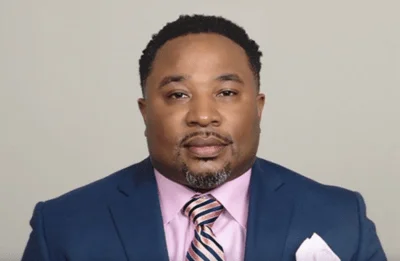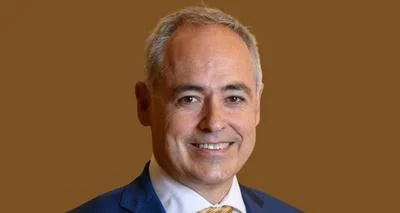Illinois corn and dairy farmer Calvin Taylor recalls the day in September 2011 that his wife, Debra, called him on his cellphone and told him that a crew of IRS agents were at their home, wanting to talk to him.
Over glasses of iced tea, the agents told Calvin Taylor that they didn’t think they were in trouble, but they had some questions about their banking practices.
“I’ve always felt if you’re running your business honest, you should be able to sit down and talk about what you’re doing with anybody and get it straightened out,” Calvin said.

U.S. Rep. Peter Roskam (R-IL)
But by the end of the conversation, the Taylors learned the Internal Revenue Service was accusing them of structuring. Illegal since 1986, structuring occurs when a business or individual purposely reduces the amount of their bank deposits to stay under the $10,000 threshold that triggers IRS scrutiny. The law was designed to stop the transfer of money from illegal drug sales, terrorism and money laundering.
When structuring is believed to have occurred, the IRS has what are called “civil asset forfeiture rights,” meaning that they can confiscate an entire bank account until the defendant proves his or her innocence.
In the Taylors’ case, it meant agents had seized $90,000 from their bank account, leaving them unable to pay creditors and workers.
“[That] left us with nothing,” Calvin said. “My wife gasped because we had just sent the invitations to my daughter’s wedding. As those guys were leaving, one of them said, you need to hire a lawyer, and if you’re innocent, you may get part of your money back. We were just dumbfounded after they left.”
Unfortunately, the Taylors’ case was not unique. According to “Stories from the Sixth,” a new podcast from U.S. Rep. Peter Roskam (R-IL), the couple are among many small business owners who have had their bank accounts wrongly seized because of structuring laws. The laws can create hardship by tying up funds at the discretion of the IRS, without due process for the defendants.
But after the U.S. House of Representatives approved new legislation in April that Roskam, a member of the House Ways and Means Committee, had introduced a year ago, the IRS is now required to prove more than suspicion that a crime may have occurred—they must now actually charge a defendant with a specific crime before being able to seize assets.
The Clyde-Hirsch-Sowers Respect Act drew strong bipartisan support, passing the House unanimously last fall. As chairman of the Ways and Means Oversight Subcommittee in 2015, Roskam began investigating abuses of civil asset forfeiture almost three years ago.
Former Sen. Charlie Rangel (D-NY) had voiced outrage at the IRS's abuse of civil forfeitures.
“It is painful for me to see that this torture continues without coming to a shrieking halt,” Rangel said during a February 2015 hearing. “I’m a former prosecutor. The law makes a lot of sense when you’re dealing with criminals, drug dealers with millions of dollars in cash. The opposite side of that coin [are] hardworking Americans that make us proud to have a family of people who do different things to make the country greater.”
Even veterans returning from service were not exempt from civil asset forfeiture abuse. In the podcast, Roskam tells the story of Andrew Clyde, a veteran of three combat tours of duty in Iraq who suffered a similar fate as the Taylors.
Clyde, who opened a store in Georgia upon returning stateside, purposely kept his bank deposits under $10,000 because his insurance policy would only cover off-premises losses up to that amount.
“The IRS seized $950,000 from him,” Roskam explained. “The agency then threatened him with criminal structuring charges until he agreed to settle for $50,000 to the IRS. That was after he spent nearly $100,000 in legal fees. Despite no underlying criminal activity, Mr. Clyde lost almost $150,000.”
When investigations began in February 2015, Roskam and Rep. John Lewis (D-GA), the ranking member of the Oversight Subcommittee, demanded that the IRS issue refunds to innocent taxpayers.
Although during IRS chief John Koskinen had tentatively agreed to an apology to those wrongly “caught in the system” during hearing held in 2015, it wasn’t until April 2017 when Roskam and Rep. Joseph Crowley (D-NY) put forward the Clyde-Hirsch-Sowers Respect Act that wrongly accused taxpayers finally got some traction toward a refund.
As Roskam explained in the podcast, the new bill prevents IRS seizures unless criminal charges have been filed and allows defendants to appeal to a federal judge and get their money back.
“That’s actually incredibly important because the IRS was acting blatantly,” he said. “In other words, they were abusing people, they were taking advantage of authority. And when you see that and it raises its head, it has to be dealt with clearly and aggressively. But it goes to the fact that we have a voluntary tax compliant system in this country. In other words, people pay their taxes voluntarily. If you have a system that loses confidence in the tax enforcer, you have a real problem.”






 Alerts Sign-up
Alerts Sign-up